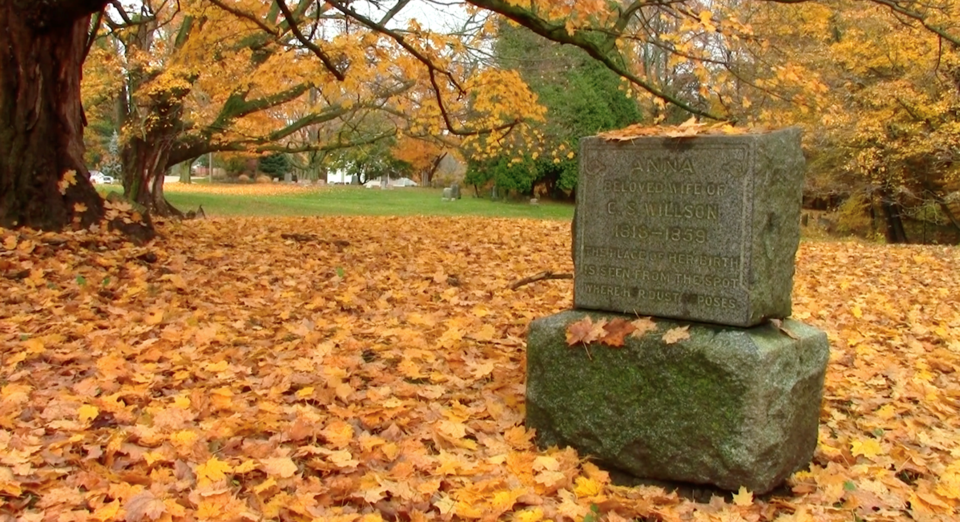Time passes, eternities await, memories linger
BY SAMUEL PICCOLO Special to the VOICE
When I was an adolescent and still dreaming of becoming a professional golfer, I would, before sleeping each night, listen to a short tape of hypnosis. This recording assured, or in any case advertised, that it would allow the listener to be more focused on the golf course, allow the listener to more easily enter the zone. I cannot be certain of its effectiveness, but whether by placebo or fluke the first round I played after such a session was by far the best of my life. Even though the marginal returns diminished soon afterward, listening to those seventeen minutes remained thoroughly meditative.
It opened much as you would expect: soft, computer-generated music shimmered in the background while a man’s baritone encouraged relaxation of body and mind. Once enough time was provided for this initial repose, he moved on, prompting the listener and himself to imagine themselves in a place that “just by being there, allows you to relax...soundly and supremely.” Perhaps the process would have been more beneficial had this place been the golf course. But since I was calm and confident everywhere else––and easily frustrated while playing––it seemed wiser to make the game like the rest of life and not the other way around. I would focus upon a three-dimensional image: a graveyard, in the evening, with my grandfather.
At about the same period as I was being hypnotized I would frequently sleep over at my grandparents’ house, in Louth. The two of them, and Grandpa particularly, adhered to a strict routine: dinner was at 5:00, followed by a walk around his yard and the block. When I spent the night I would join him on these wanderings––my favourites being those that brought us around the corner to the churchyard. It was not a great distance to this church, but Grandpa was a slow walker and there was never any rush, and so it was as much the stroll as the arrival that I recalled during hypnosis. In the summer then I often went barefoot, even as we went along the road. By the time we set off, the sun had typically reclined below the trees, but with my feet I could still feel the day’s heat stored in the pavement. Cracks filled with emulsified asphalt became slightly gelatinous beneath the sun, and my toes would leave brief indentations when I stepped on them. As pleasing as this surface was to walk upon, it was always thrilling to make it to the church and step on to the grass.
The congregation withered and the church closed long before my memories began, but its cemetery was still maintained. Grandpa was not an especially chatty man, and it was common for us to amble among the tombstones in near silence, with he only occasionally interrupting the hush to comment on something he had observed on an unaccompanied walk. The absence of pressure to speak is likely what allowed these times to acquire such tranquility: I was free to linger at the bunches of flowers that had been added since my last visit, or admire the slits of evening light streaked about the stones. It was a small piece of property, and we never took long, even at a reduced pace, to make our way through the rows, until finally we found ourselves at its back, looking down into a ravine.
This ravine had once been what most gullies accessible to automobiles must become: a dump. Though it seemed that the slope had been left alone for several years, it was still strewn with assorted discards: plastic chairs, car tires, a cracked plaster fountain with a cracked pink flamingo. These cast-offs were more or less at odds with the graveyard’s peaceful aura, but my favourite bits of refuse were those that looked less out of place. The cemetery’s oldest markers were from the 19th century and many of those on which the writing had worn off had been replaced, the old stones deposited on the edge of the ravine.
There is much to be learned from the stones in cemeteries, and so it is fortunate that those aged and worn are replaced periodically. Societal changes can be measured over time, birth rates and life expectancies, and specifics can be gleaned, too––an area’s prominent families (by cross-referencing street names) and its fatalities during the wars. Such facts of death are vestiges of sad stories, surely, but there can be sorrow in survival, too. Husbands and wives buried beside one another, decades apart, twenty years of solitude now recalled only in stone. The stories in cemeteries are the tales of families.
My hypnotist warned listeners that they should not expect immediate results. He advised us to listen to his tape twenty one days in a row before becoming upset. The virtue is in the repetition.
Grandpa hasn’t listened to the tape, but he seems to know this virtue intuitively. What remains of Grandma is buried in the northwest corner of that Louth cemetery. Grandpa’s name and date of birth are already inscribed upon his own stone. He still walks there, on nice nights. At least once every spring he takes the car so that he can more easily bring the year’s flowers for planting. In doing this, genuflecting with trowel in hand, he meets, eyes to empty space, the only blank spot on his tombstone: his death day.
It does not appear to bother him. He seems at ease. ♦



